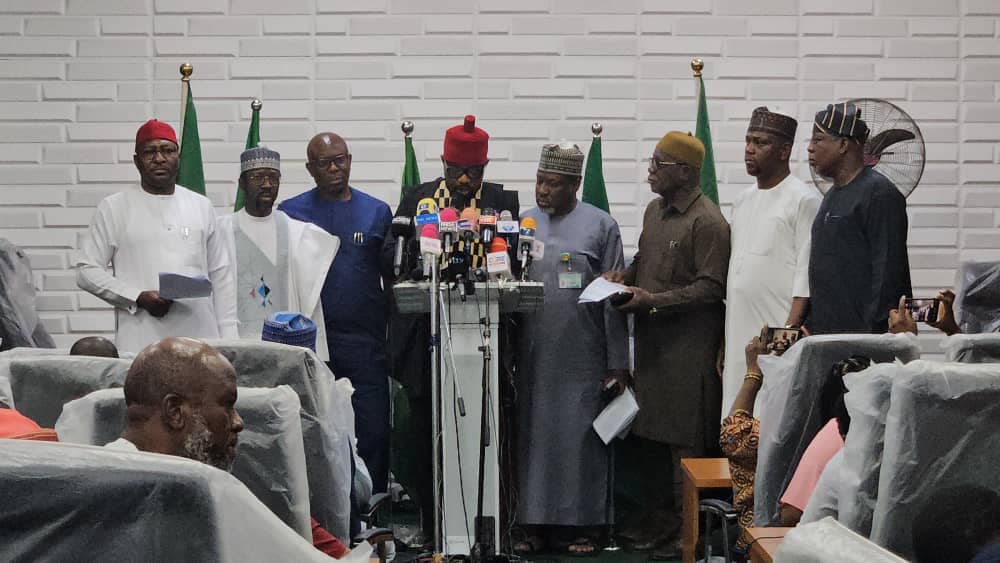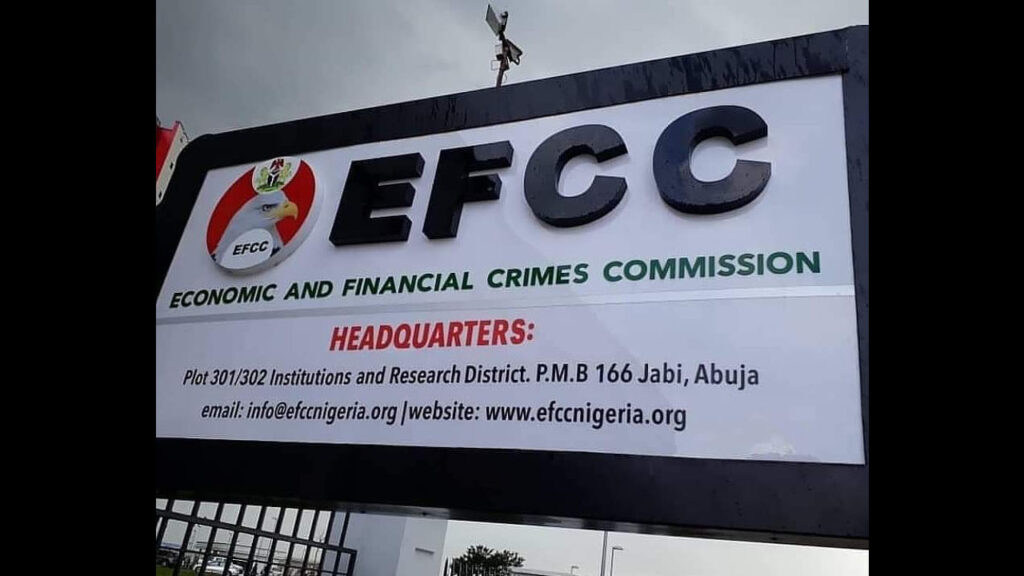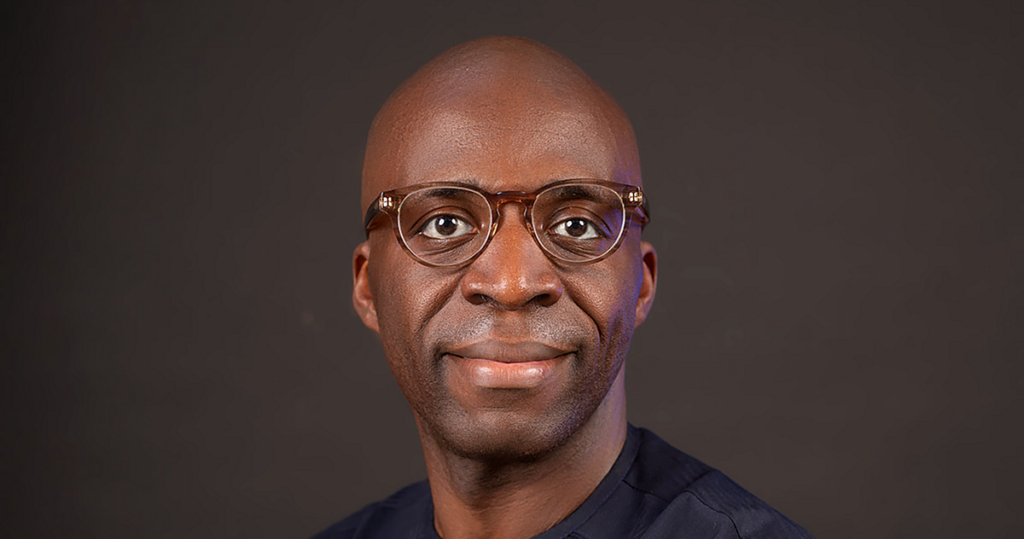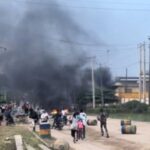
• Mining leaders make landmark commitments for 2030 in Davos
• Oyo Assembly reveals identity of alleged miner behind Ibadan explosion
• People working for illegal miners have explosives in apartments, says ex-Oyo lawmaker
• ‘Illegal miners’ claimed FG approvals — Oyo State
• Insecurity: Zamfara, Kogi revoke, ban issuance of consent letter to miners
As global mining and metals companies in Davos at the World Economic Forum commit to urgent action to support a nature positive future by 2030 that promotes the health, diversity and resilience of species, ecosystems, and natural processes, national and sub-national governments are still in a quandary on how to check the menace of illegal mining and effectively regulate the sector following Tuesday’s explosion in Ibadan, Oyo State.
With responsibly produced minerals and metals playing a critical role in advancing global sustainable development goals, International Council on Mining and Metals (ICMM) members, representing a third of the global industry, at the ongoing summit in Switzerland, pledged that meeting this demand for critical materials must not be at the expense of nature.
Shaped by experts and leaders from across ICMM company and association members, as well as from civil society, academia, indigenous representatives, and investor bodies, ICMM’s new commitments shared in Davos set out a five-point plan for nature: Protect and conserve pristine areas of natural environment – No mining or exploration in World Heritage Sites and respect all legally designated protected areas; Halt biodiversity loss at operations; collaborate across value chains; restore and enhance landscapes; and catalyse wider change.
Just as the action plan to regulate mining across the world was being drafted yesterday, the death toll from the explosion, which rocked Dejo Oyelese Street in Bodija, Ibadan, rose to five. Special adviser on security matters to Oyo State Governor, Fatai Owoseni, disclosed this yesterday in an interview.
The explosion, which the state government said was caused by explosives stored by illegal miners who lived in the area, had left many injured with several houses, properties and cars worth millions of naira destroyed.
Oyo State Governor, Seyi Makinde, had earlier in a press briefing, identified the culprit, promising justice for the victims. Owoseni equally gave updates on the casualties, noting that two more dead bodies were recovered from the scene on Thursday morning.
“As of yesterday (Wednesday), the governor indicated we had three dead persons, 77 wounded, but just before we started this interview, the security operatives in the area had sent me a text to let me know that two more dead bodies were recovered this morning,” he said.
The Oyo State House of Assembly at its plenary yesterday, disclosed the identity of the person allegedly behind the explosion as Sawani Yusuf (Sawane Youssouf), who is the President, Oyo State chapter of the ECOWAS members, Nigeria Miners Association (NMA). While the nationality of the alleged culprit remains unconfirmed, the assembly called on security agencies to intensify efforts at bringing all connected to the explosion to book.
The deliberation followed a motion presented to the House by Adebayo Babajide. While frowning at the way such an explosive device was brought and kept in a residential area, the House wondered who authorised keeping or storing such devices in the house, while querying where and how the dynamites were stored in the said building leading to the disaster.
In their separate submissions, lawmakers lamented the explosion, while noting that Ojoo Gem Stone market remains the largest in Africa with many expatriates living within the area. The House called on government and security agencies to expand the investigation net to ensure that no stone was left unturned in the bid to holistically address the aftermath of the explosion.
In his remark, the Speaker, Adebo Ogundoyin, said: “We can discuss different angles to how the situation affects us and different solutions as to ensuring that this situation never occurs again but for now let us wait for the outcome of the security investigation to shed more light on the happenings. As soon as we have more information, I’m sure we’ll be able to deliberate further as to the next action move.”
A former member of Oyo House of Assembly, Muideen Olalekan Olagunju, gave the warning that there is a possibility that people working for illegal miners in Ibadan have explosives in their rented apartments. Olagunju, in a statement titled, ‘More on Ibadan explosion’, revealed that Youssouf, a Malian who was occupying the building where the incident occurred, is the leader of the illegal miners in the state.
He revealed that Youssouf and three others, including a Nigerian, registered a company called SDYB International Company Limited with registration certificate 511184, in 2004, to engage in mining activities in the state.
He added that Youssouf, Darame Ibrahima, Yattara Ibrahim and Bakare Hakeem Oladimeji are the directors in the company involved in illegal mining activities especially in Iwere-Ile in Iwajowa Local Government Area of the state.
The former lawmaker noted that Youssouf has many people working for him in the Bodija area of Ibadan and each of them might have explosives in their various rented apartments. He advised that the government must immediately determine the locations of those working for Youssouf and take proper charge of explosives in their possession.
Olagunju said: “I can authoritatively inform you that the explosion in Ibadan is the handiwork of a Malian immigrant engaged in mining operations in the Oke-Ogun area of Oyo State. Youssouf has been stockpiling explosives in a house (unknown if he owns it or if he rented it) for years. These explosives he stored for the purpose of his extensive mining business.
“How he was able to do that in a residential estate with few eyebrows raised is a failure of intelligence at both government and community levels. To think the location is just a stone throw from the Government Secretariat is damning. His own negligent stupidity as well as government taciturn approach to security of lives and properties have caused unnecessary deaths, injuries and property damage.
“I have credible information also that Youssouf used police, DSS and other security operatives to move his explosives and other logistics. It shows complicity. It is unclear if he was in the house when the explosion occurred. If he was, I doubt he would survive the magnitude of the blast. Everything within 100 metres radius of the blast site is flattened.”
In an interview granted to one of the major newspapers in November 2020, Youssouf had said he was into legitimate business in Nigeria, in which he also denied allegations that foreigners are exporting precious stones from Nigeria without paying royalty.
The suspect, whose whereabout is still unknown since Tuesday said in the interview that he is from Mali but that he had lived here in Nigeria for quite some time.
“I gave birth to all my children here in Nigeria. The Nigerian government, my country’s president and my ambassador in Nigeria are all aware we are doing our legitimate business here in Nigeria,” he said.
He revealed in the interview that he has been dealing with precious stones in Nigeria for over 30 years and was elected president of the association in 2016. He disclosed how he started the business as a messenger and gradually became a master who has traversed all the areas of the business.
Speaking on how illegal miners were able to store explosives in the area, Owoseni said the security agencies can’t know without credible intelligence.
“Let me first say that the notion that Nigerians and everyone has that the security people must know everything is a bit right, but at the same time wrong. The concept and philosophy guiding security work, especially policing, is that the people are the police, and the police are the people. Without credible intelligence, the security people would not know anything.”
According to the governor’s Special Adviser on Security, operators of the illegal mining and gemstone markets discovered in Ibadan claimed to have approvals from the Federal Government.
He said: “For the past two years, the governor has been engaging the Federal Government with regards to mining. We’ve discovered that there is an illegal mining market, a gemstone market in Ibadan around Ojoo and populated by foreigners. And when you go there if you want to do any operation, either as police or state apparatus, they will show you approval which they have gotten from the Federal Government.”
Owoseni said that there is a lot of decadence in the mining industry from those who are supposed to oversee miners by conducting checks.
Governor Makinde has however said he would not ban mining activities in the state. Makinde stated this in an interview on Channels Television’s Politics Today.
When asked if he was going to ban mining in the state following the incident, he said: “My approach has been a little bit different. I will not go out to ban mining activities because there are legal miners in the state.
“They may be international investors. You will give the impression that this is a lawless environment where we will not obey our contracts, what we signed with people. It is a difficult route to take. When we are swimming through the situation, we have found ourselves, we will not have a knee-jerk reaction to the issue.”
MEANWHILE, the governments of Zamfara and Kogi states have taken some steps to regulate mining activities in their domains. Yesterday, the Zamfara State government revoked all consent letters to individuals, companies, or organisations for mining activities in the state.
The governor, Dauda Lawal, signed an Executive Order, which now prohibits traditional rulers from issuing consent letters for mining across the state.
Senior Special Assistant to the Governor on Media and Publicity, Sulaiman Idris, said the executive order was signed to stop one of the worst trends in the fight against banditry in the state. “The order has banned all consent letters for mining. This includes consent letters to individuals, companies, or organisations for mining activities.”
The governor explained that the decision was to curb the severe dangers posed by the rampant issuance of the consent letters. “Mining activities have been identified as a significant factor contributing to the worsening security situation of the state, especially the menace of banditry.”
Lawal said a responsible government would take decisive action to resolve illegal mining operations that have been contributing to the crisis in the state. Zamfara has been one of the worst affected states by kidnappings, killings and other unwholesome activities of bandits and terrorists in the Northwest zone.
Similarly, the Kogi State government has placed a ban on the issuance of consent letters to miners without approval. The Kogi Commissioner for Solid Minerals and Natural Resources, Bashiru Gegu, made the disclosure while briefing the press after a meeting between the state government and stakeholders in the mining sector yesterday.
The Commissioner disclosed that henceforth, all community development agreements must be vetted before any mining activities take place in the state. The Commissioner reiterated the state’s commitment to ensuring sanity in the activities of mining activities.
He equally assured that the efforts of the government are geared towards protecting the lives of people living around mining activities, protecting the environment and ensuring that only approved miners engage in legal mining activities with the communities protected and made to benefit from the activities of the mining around their communities.












